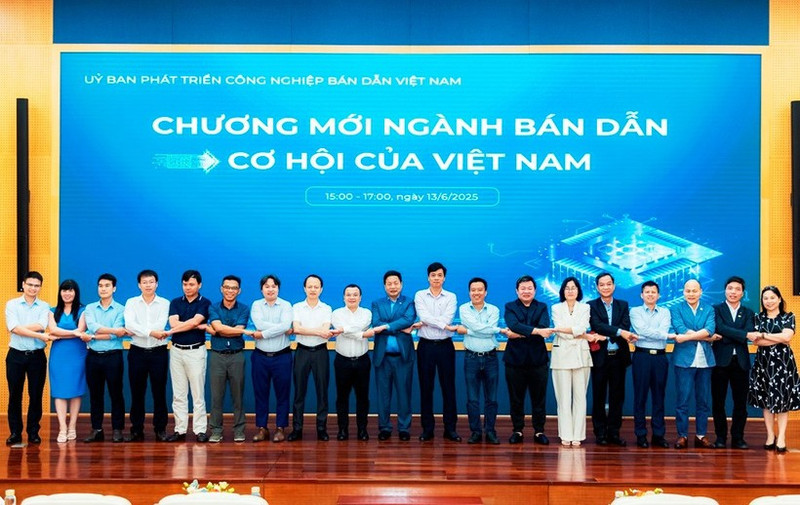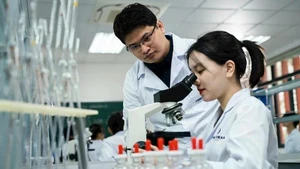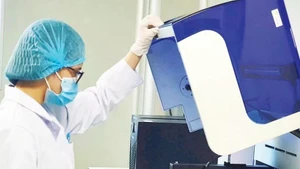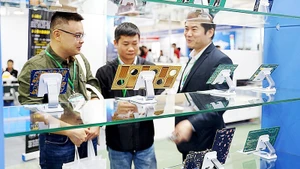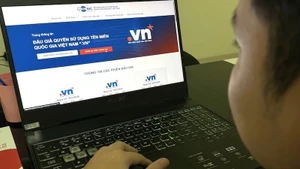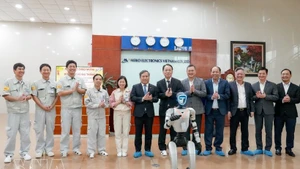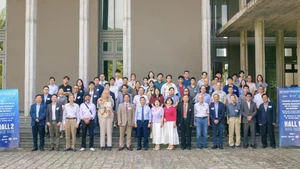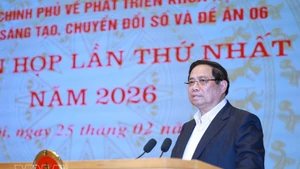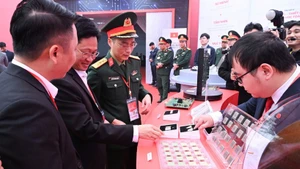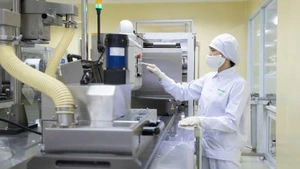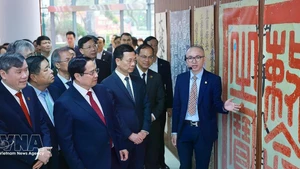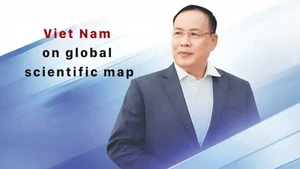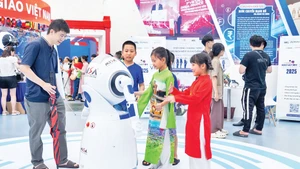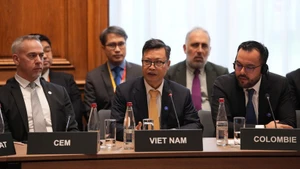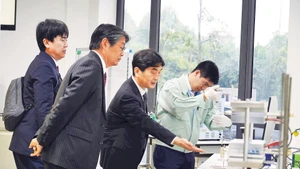The Viet Nam Software and IT Services Association (VINASA) and the Semiconductor Industry Development Committee recently held a workshop themed “New chapter of the semiconductor industry - Opportunities for Viet Nam”, gathering many leading experts, business leaders and representatives of management agencies.
The event attracted hundreds of delegates including leaders of ministries, branches, localities, technology enterprises and academies, universities, overseas Vietnamese who are semiconductor experts working at large corporations around the world.
Viet Nam has advantages in both artificial intelligence and semiconductors
Truong Gia Binh, Chairman of the Founding Council of VINASA, Chairman of the Semiconductor Industry Development Committee, Chairman of the Board of Directors of FPT Corporation emphasised: “The semiconductor industry is opening a new chapter for Viet Nam with golden opportunities to break through and play an important role in the global value chain, contributing to building a self-reliant and self-reliant economy”.
Talking about Viet Nam’s opportunities, Binh compared semiconductors to “food of the digital age - like rice for the Republic of Korea”, and artificial intelligence (AI) to “new strategic energy - like oil and gas in the future”. Decision No.1131/QD-TTg of the Prime Minister has established: AI and Semiconductors are two important technologies and Viet Nam has advantages to develop this industry, especially with strong human resources and aspirations to rise.
According to Binh, more than 25 years ago, FPT - a pioneer in Go Global, opened its doors to the world in the 1990s but was alone because it did not spread the spirit of software exports, causing the Vietnamese business community to be slow in adapting to the wave of technology globalisation.
FPT also did not invest in semiconductors when the opportunity came early, even though the Group’s leaders had been to Taiwan and saw the potential of this industry. Binh affirmed: “FPT will not repeat those mistakes again.”
Promoting semiconductor technology together
Nguyen Bich Yen, a member of the Institute of Electrical and Electronics Engineers (IEEE) and a leading expert in the field of semiconductor technology, emphasised the importance of advanced packaging technology - a key field in the global semiconductor value chain and suitable for Viet Nam’s development conditions.
She said that there are currently more than 20 members of the Semiconductor Industry Development Committee working together to promote this technology, towards establishing a specialised research institute in Da Nang.
Representing the research and training sector, Professor, Dr. Tran Xuan Tu – from the Hanoi National University emphasised that the young generation needs to aspire to get rich with knowledge and technology. He said that Ha Noi National University has approved 7 new training programmes on semiconductors, established 3 research institutes on materials, AI and electronic technology. At the same time, the school is negotiating cooperation agreements with TSMC and Amkor to build a chip design ecosystem and improve advanced packaging capacity.
Le Nam Trung - Deputy Director of the Department of Information Technology Industry, Ministry of Science and Technology emphasised: In the past time, especially since the third quarter of 2024, the Government has directed strongly, issued many important policies and strategies such as the National Semiconductor Industry Development Strategy at an impressive speed, creating a clear and specific legal corridor for the industry.
Trung also pointed out the remaining challenges, such as concretising policies, identifying focal agencies, mobilising businesses to participate... still need to be completed. He called for closer cooperation from the business community, associations and experts so that the policies can truly come into life, contributing to building a strong technology ecosystem.
In addition, the speakers discussed frankly the current situation, challenges and solutions for developing the semiconductor industry, thereby proposing support policies, building towards attracting investment, training high-quality human resources and promoting international cooperation.
